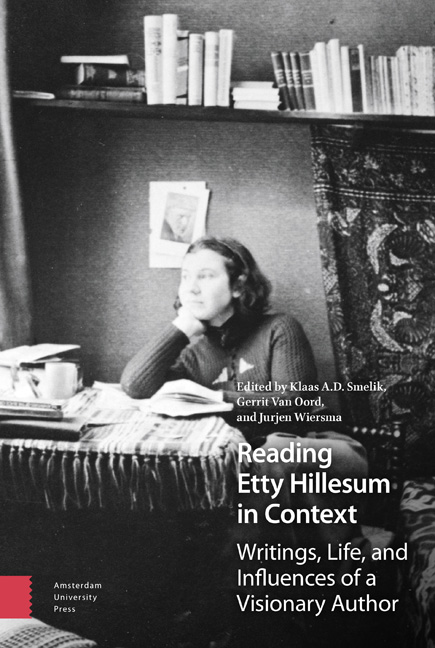24 - Loving-Kindness, Hatred, and Moral Indignation: Etty Hillesum and Vladimir Jankélévitch, Ordo amoris
Published online by Cambridge University Press: 06 January 2021
Summary
Abstract
In this essay, the author elucidates Vladimir Jankélévitch's ideas on forgiveness and the inexcusable, and investigates their reflection in the moral stance taken against Nazism by Etty Hillesum. Jankélévitch argued that the “suspension of pardon” was crucial for reasons of morality itself. The author asks, was this not in contradiction to the opinions Etty Hillesum developed in those outrageous times? He point out that Etty Hillesum also esteemed “morality itself,” placing loving-kindness and the absence of hatred at its core. What may initially seem to be a moral quandary on Hillesum's part, given the Nazi destruction of the Jews, is – on closer inspection of the writings of Jankélévitch and Etty Hillesum – not as contradictory as it appears.
Keywords: Vladimir Jankélévitch, Ordo amoris, morality, forgiveness, evil, love, Etty Hillesum
“After this war, two torrents will be unleashed on the world: a torrent of loving-kindness and a torrent of hatred.” And then I knew: I should take the field against hatred.
Etty Hillesum refers to the words of Julius Spier. On 23 September 1942, she writes: “Klaas, all I really wanted to say is this: we have so much work to do on ourselves that we shouldn't even be thinking of hating our so-called enemies. We are hurtful enough to one another as it is.”
In the opinion of the French moral philosopher, Vladimir Jankélévitch, who during the Second World War was member of the Resistance against the Germans and who after the war was an unbending advocate of the “imprescriptibility” of the crimes of the Nazi's and their collaborators, forgiveness wasn't at stake in our judgement of the deportations and the killings of Jews. The “suspension of pardon,” as I may call it, was essential to Jankélévitch for reasons of morality itself.
Morality itself? Is this what Etty Hillesum is referring to when she writes in her long letter on 18 December 1942: “And the absence of hatred in no way implies the absence of moral indignation.”
Would it be possible to have both? At one side: loving-kindness and the absence of hatred, and at the other: moral indignation? Such is the everlasting question with which I am confronted as a moral philosopher across the testimony of Etty Hillesum's life and work.
- Type
- Chapter
- Information
- Reading Etty Hillesum in ContextWritings, Life, and Influences of a Visionary Author, pp. 459 - 478Publisher: Amsterdam University PressPrint publication year: 2018



